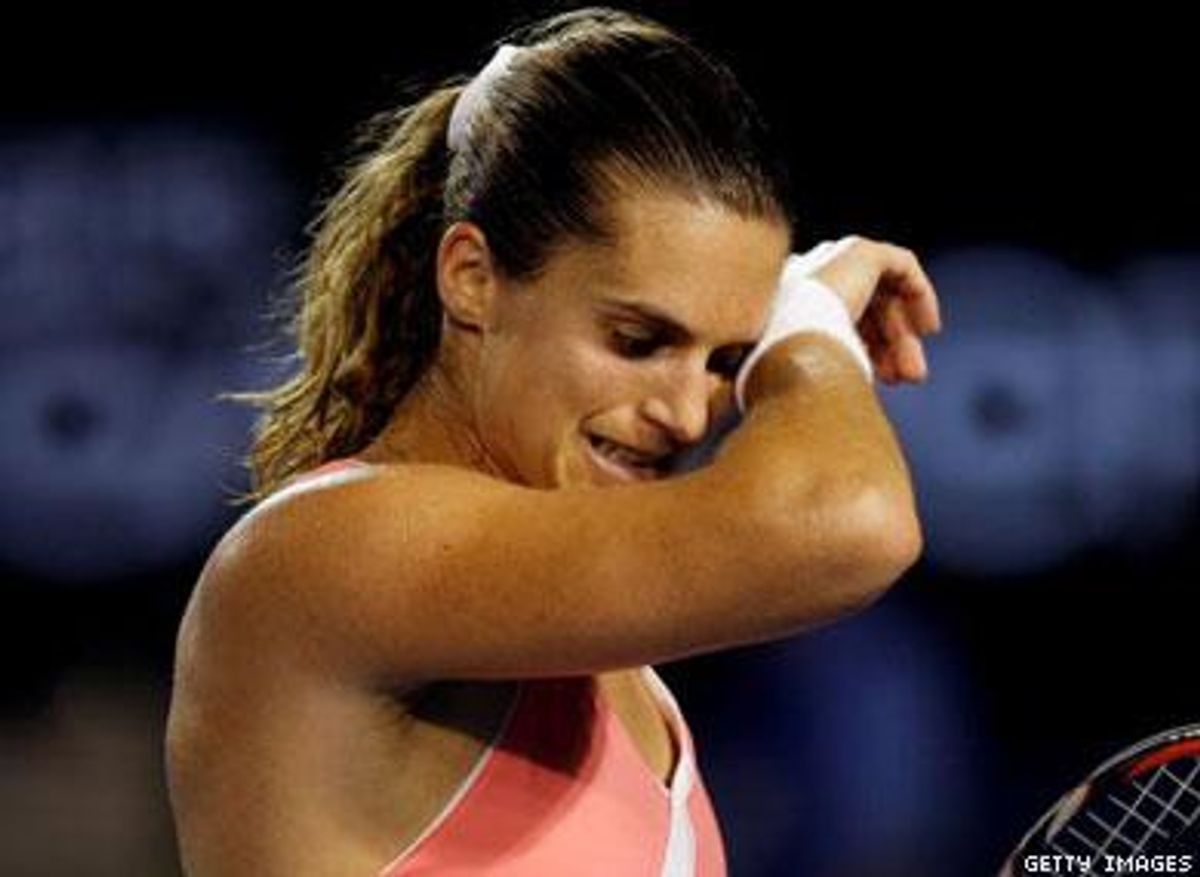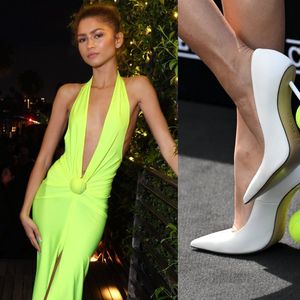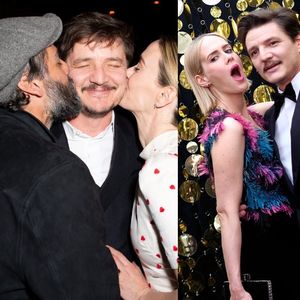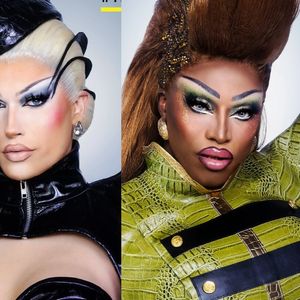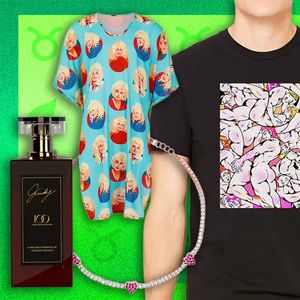Professional tennis careers can be counted in dog years. Twelve months tracking down yellow balls across five continents feels like seven years; a decade is a lifetime. So when Amelie Mauresmo says it's been "almost an entire life" since her breakthrough showing at the 1999 Australian Open, where she both reached the final and came out of the closet, she's not being flip. Not entirely, anyway. "I'm 100 years old, I guess," the 29-year-old says with a laugh.
Mauresmo is back at Melbourne Park for the 2009 tournament, which starts January 19, only now she's in the twilight phase of what has become a distinguished career. Three years ago she won the Australian Open and Wimbledon, spending most of the year ranked number 1, but she's tumbled from that high. Last spring, after an injury-plagued, confidence-sapping turn, she publicly discussed retirement. In 2008 she barely finished in the top 25.
A richly talented, all-court player known as much for her electrifying shot-making as for the nerves that sometimes undercut it, Mauresmo still has the tools to contend. But as she approaches her 30th birthday in July, with fresh teenage phenoms arriving all the time, the world's most visible lesbian athlete since Martina Navratilova may pull the plug at any moment. And if she does, there don't seem to be any out players to take her place.
Unlike maria sharapova or the Williams sisters -- or some of the upstart talent from Eastern Europe, like Ana Ivanovic and Jelena Jankovic -- Mauresmo isn't a global brand. Sure, she has the de rigueur sponsorships with Nike and the like, but she's always been focused more on the craft than the limelight.
I'd been pursuing Mauresmo for an interview for the better part of 20 months, so I was pleased and somewhat surprised when word came that she'd finally agreed to do it -- she rarely talks about her sexual orientation anymore. But as it turned out, my request had been miscommunicated: She thought the interview was for another publication, not The Advocate . As we sat down in the players' garden at the U.S. Open in August and I asked why she'd decided to chat, she looked confused and startled. When the tan, fit Frenchwoman, dressed in shorts and a sleeveless athletic top, finally understood what was up, she leaned forward in her chair. I figured she was about to stand, politely decline, and leave.
"So what do we do?" she asked. I said it was up to her. She sat back and barely hesitated. "Yeah, whatever."
It was with that same laid-back attitude that she came out in 1999, after advancing to the quarterfinals of the Australian Open. A jubilant Mauresmo voluntarily disclosed to the press that she is a lesbian -- and that her girlfriend had accompanied her Down Under. Unfortunately, the reaction was unkind: The Australian tabloids had a field day, and crass comments from her peers didn't help. Then-number 1 Lindsay Davenport, whom Mauresmo beat in the semifinals, remarked on Mauresmo's power, saying she thought she was playing a guy. Then-superstar Martina Hingis -- who beat Mauresmo in the final -- called her "half a man" and complained about her girlfriend's presence at the match. The negative attention nearly obscured Mauresmo's accomplishment in competing for the championship as an unseeded player.
But Mauresmo didn't flinch. She said she was unwilling to expend energy hiding her sexual orientation and felt "sorry" for those who were having a hard time dealing with it. "When the media asks me what's going on in my life, I'm obliged to talk about this because it's part of my life," she told The New York Times . "It's clear that I'm not going to get unanimous support for this. Not everybody is going to be behind my back saying, 'Super.' But no matter what I do, there will always be people against me."
Still, she was stung by the feedback, even if she didn't show it publicly. "At the beginning it was very brutal, hard to take," Mauresmo says now. Coming out also estranged her from her family. But eventually the ice thawed: Mauresmo reconciled with her dad before he died of cancer in 2004, and now her mom, once invisible on the tour, occasionally travels with her to tournaments.
And Mauresmo herself has relaxed. "Maybe my attitude makes people feel more comfortable," she says, but they "act completely normally to me -- we can joke around." While she understands that it takes public figures like her to help end homophobia, like anyone, she wants to be seen in her entirety. "Everyone has their moment to [come out] and then they go beyond this issue. If people say, 'It's great that you are gay,' I say, 'Why?' It's not great or not not great. It's just the way it is."
She is, however, tight-lipped about whom she's dating. Recently she's been linked with Geraldine Filiol, an executive with European sports broadcaster Eurosport, but Mauresmo confirms they're no longer together. She won't go further, though. "I don't want to get into this," she says. When I press her, she cuts off the line of questioning like a crisp volley at the net. "I'm not going to develop on this subject. Sorry."
As the furor over her sexual orientation faded, however, Mauresmo became increasingly dogged by her failures on the tennis court. A powerful player with beautiful strokes and a deft touch, she can also be mentally fragile: She was notorious for tightening up at critical moments in the latter stages of the four Grand Slams, especially in her own backyard at the French Open, where she's never advanced past the quarterfinals in 14 attempts. When she won the 2006 Australian Open, it was her 32nd attempt at a Grand Slam title -- the second-longest wait in the sport's modern era.
At the end of 2007 -- during which she underwent an emergency appendectomy that forced her off the tour for two months, followed by an adductor strain that led to another two-month hiatus -- Mauresmo wasn't sure she could compete with the firepower top players now possess. Her thoughts turned to retirement.
But as she gradually regained her health and confidence this past summer, the idea dissipated. "I think I was wrong," Mauresmo says about quitting. "I think I can still somehow go on the court against these guys and be able to have some good wins out there." Still, 2008 was one of her worst seasons: She failed to win a title for the first time in 10 years.
Even so, with two grand slam titles, 24 career titles, and 39 cumulative weeks at number 1 -- the ninth-best all-time run -- Mauresmo is a shoo-in for the International Tennis Hall of Fame. "On the plaque, I don't think it'll mention that she's gay," veteran tennis commentator Mary Carillo says, noting that the quality of Mauresmo's career stands on its own.
But that's one kind of success. What about Mauresmo's legacy as an out athlete?
Billie Jean King and Martina Navratilova came before, but Mauresmo's path has been fundamentally different in three ways: She came out at the beginning of her career, she did so of her own volition, and she says she's had no problems attracting sponsorships. By contrast, King was dragged out of the closet by a palimony suit, while Navratilova tiptoed out little by little, going fully public only toward the end of her career. By most estimates, both lost out on millions in potential endorsements.
If King was the pioneer and Navratilova the outspoken, take-me-or-leave-me activist, Mauresmo could be remembered for unobtrusively being herself. Though her coming-out was bolder and riskier than that of her forerunners, Mauresmo has rarely strayed beyond the 36-by-78-foot playing lines of the tennis court to influence society at large. "I don't know that she ever wanted to be a barrier breaker," Carillo says. "I don't think she had the ego of a Martina or a Billie. She just wanted to quietly insist on herself."
Mauresmo certainly believes her legacy will be her game, and not anything to do with being gay. "I definitely think people are going to remember my ability to come in, to slice, to put some spin [on the ball], to serve and volley, and to mix things up a lot," she says, adding a nod to her perseverance, "I definitely hung in there."
What hasn't materialized, though, is a new wave of openly gay players. Mauresmo maintains she's never had issues with her peers or coaches because of her sexuality, so where are the others? Mauresmo says no closeted players have asked for her advice.
Carillo says the closet in tennis is no different from that in other sports. As both media scrutiny and commercial opportunities have grown, so has the collective cocoon around stars. "E,f;'It's none of your business' is more the attitude," she says. And Australian player Rennae Stubbs, a top-ranked doubles specialist and the only other out lesbian currently on tour, says there's "no doubt that sponsorship is a major part" of why people don't come out.
But Mauresmo's popularity among her fellow players surely means something. Admired for her tennis skills as well as her affable, straightforward manner, she can often be found in the locker room or players' restaurant playing the French card game belote with her coach and other male and female compatriots. An informal survey of players and pundits turned up nary an unfavorable word.
"I can't think of people who have said negative things about her," says TV analyst and former pro Pam Shriver. "She's classy," Stubbs adds. "Maybe they wanted to not like her, but in the end you couldn't not like Amelie Mauresmo."
Mauresmo can add to her legacy with another big win this year. For now she'll likely be remembered for getting the demons off her back at Wimbledon, for handling her first major victory in Australia with equanimity, and for defying any layer of phoniness almost from the outset of her career. She'll also be remembered for an engaging frankness and ability to enjoy some of the finer things in life. "If there's one player I'd like to sit down and have a glass of wine with, it would be Mauresmo," Carillo says. "And preferably her wine."
Yes, the Frenchwoman is an oenophile, with a wine cellar in her home, and she'd like to combine her two passions in the future. "Tennis is my life, so I would like to stay involved," she says, but a Mauresmo wine label may be in store too. What varietal? "A red for sure -- a Bordeaux, good body, fruity."
